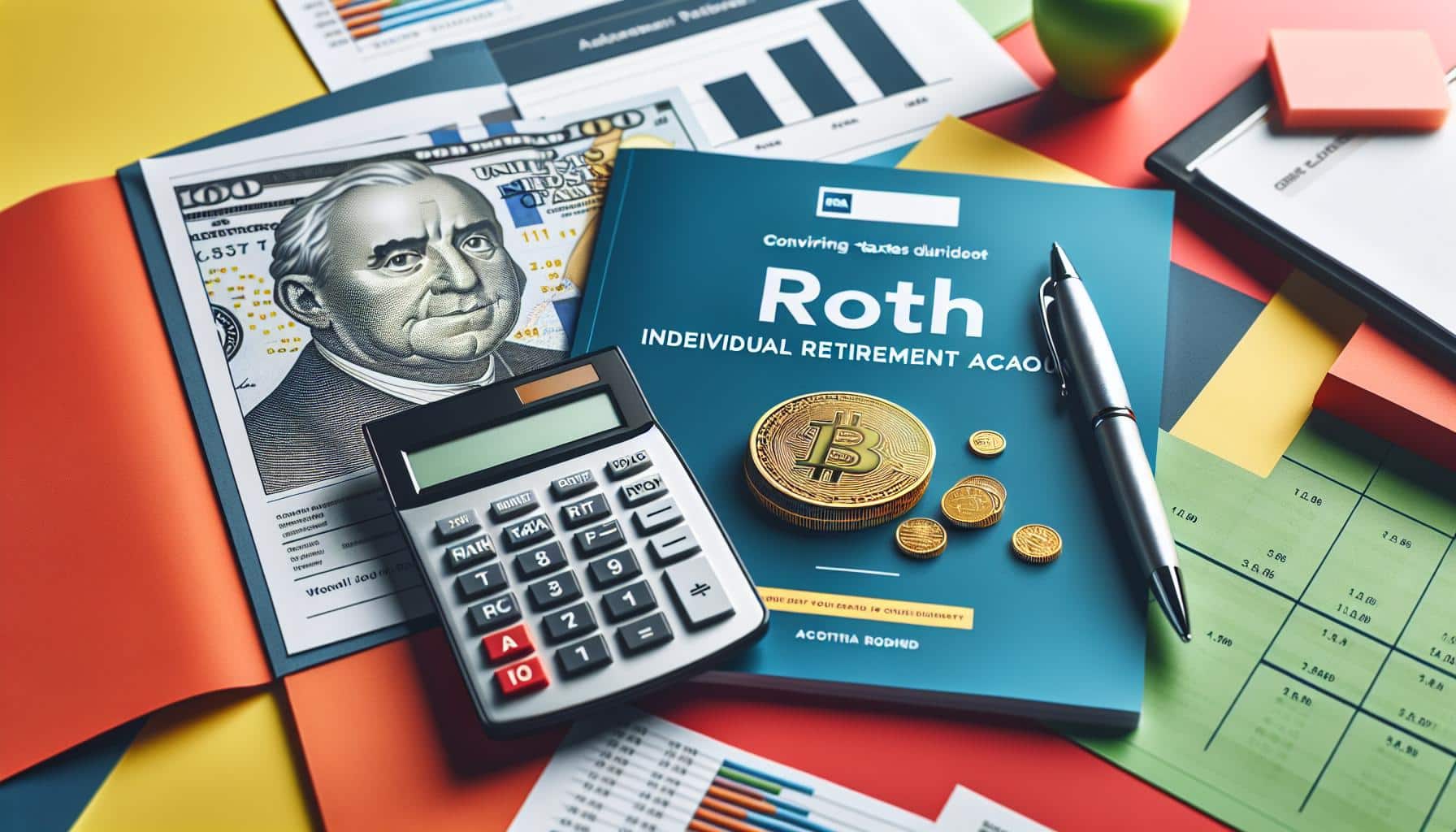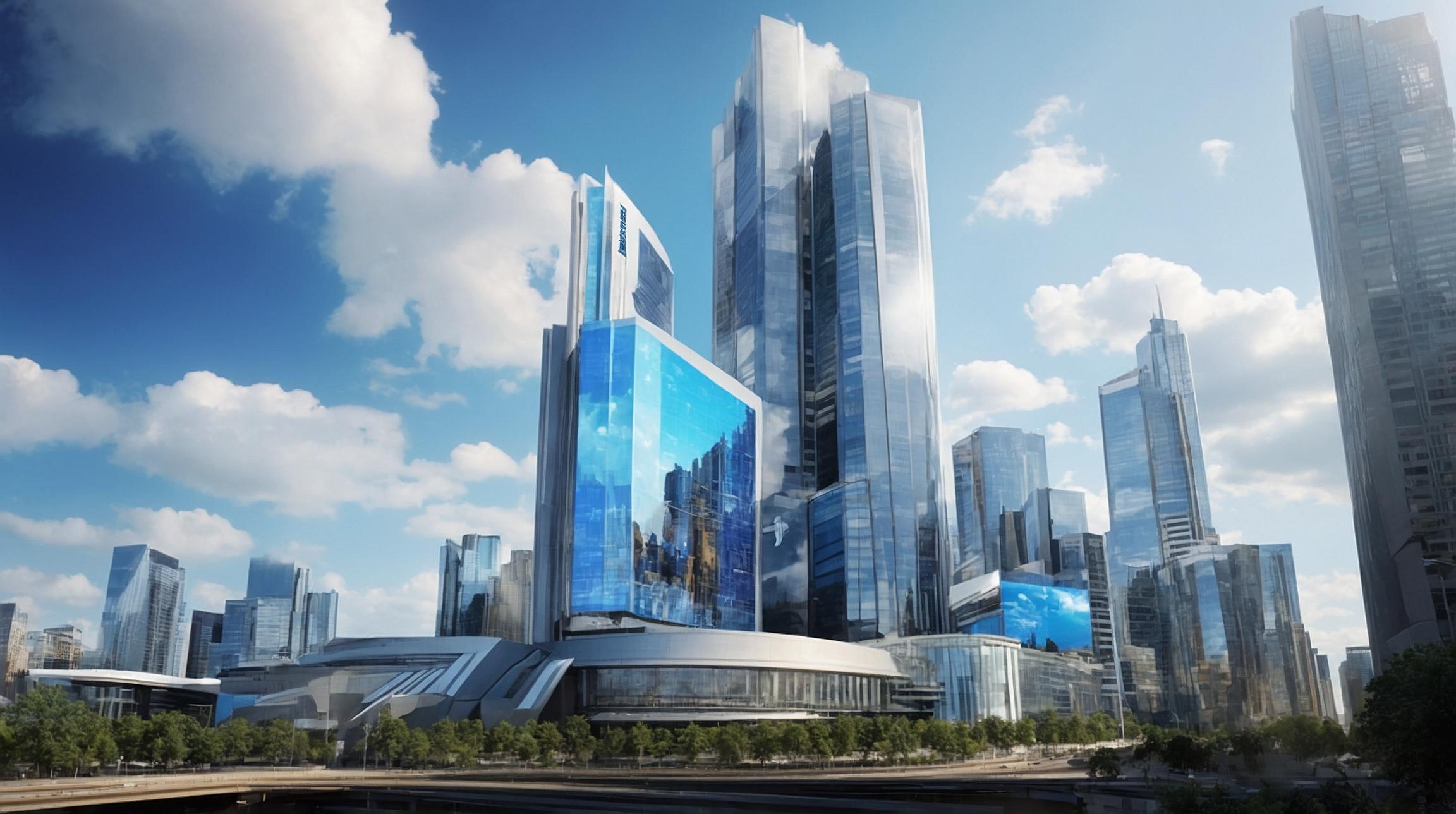The property technology sector is demonstrating resilience and potential for significant growth following a severe market contraction. While traditional real estate tech investments are rebounding, climate-related property technologies face a complex environment shaped by political headwinds and evolving investor sentiment. !-- wp:paragraph -->
Contents
FinOracleAI — Market ViewFinOracleAI — Market ViewFinOracleAI — Market ViewLocal Governments Drive Environmental Progress Amid Federal RetreatFinOracleAI — Market ViewLocal Governments Drive Environmental Progress Amid Federal RetreatFinOracleAI — Market ViewLocal Governments Drive Environmental Progress Amid Federal RetreatFinOracleAI — Market ViewClimate-Related Property Tech Faces Political and Market HeadwindsLocal Governments Drive Environmental Progress Amid Federal RetreatFinOracleAI — Market ViewClimate-Related Property Tech Faces Political and Market HeadwindsLocal Governments Drive Environmental Progress Amid Federal RetreatFinOracleAI — Market ViewSigns of Recovery and Renewed Investor ConfidenceClimate-Related Property Tech Faces Political and Market HeadwindsLocal Governments Drive Environmental Progress Amid Federal RetreatFinOracleAI — Market ViewSigns of Recovery and Renewed Investor ConfidenceClimate-Related Property Tech Faces Political and Market HeadwindsLocal Governments Drive Environmental Progress Amid Federal RetreatFinOracleAI — Market ViewProperty Technology Emerges from a Challenging WinterSigns of Recovery and Renewed Investor ConfidenceClimate-Related Property Tech Faces Political and Market HeadwindsLocal Governments Drive Environmental Progress Amid Federal RetreatFinOracleAI — Market View
- Opportunities: Renewed investor interest in property tech evidenced by IPOs and unicorn valuations; long-term growth potential as real estate modernizes.
- Risks: Political shifts reducing federal support for climate tech; negative investor sentiment impacting fundraising and valuation.
- Local Dynamics: Continued commitment by municipal governments to sustainability initiatives, providing a counterbalance to federal policy changes.
- Capital Deployment: Strategic investments by major venture funds like Fifth Wall targeting undervalued climate tech assets.
“The real estate industry is still responsible for 40% of carbon emissions. It’s still this industry that has shirked its responsibility for years, and it’s going to cost a lot to decarbonize. It’s a lot of money, and capital is going to flow into that space,” Wallace said.FinOracleAI — Market View
The property technology sector is demonstrating resilience and potential for significant growth following a severe market contraction. While traditional real estate tech investments are rebounding, climate-related property technologies face a complex environment shaped by political headwinds and evolving investor sentiment. !-- wp:paragraph -->- Opportunities: Renewed investor interest in property tech evidenced by IPOs and unicorn valuations; long-term growth potential as real estate modernizes.
- Risks: Political shifts reducing federal support for climate tech; negative investor sentiment impacting fundraising and valuation.
- Local Dynamics: Continued commitment by municipal governments to sustainability initiatives, providing a counterbalance to federal policy changes.
- Capital Deployment: Strategic investments by major venture funds like Fifth Wall targeting undervalued climate tech assets.
“The real estate industry is still responsible for 40% of carbon emissions. It’s still this industry that has shirked its responsibility for years, and it’s going to cost a lot to decarbonize. It’s a lot of money, and capital is going to flow into that space,” Wallace said.FinOracleAI — Market View
The property technology sector is demonstrating resilience and potential for significant growth following a severe market contraction. While traditional real estate tech investments are rebounding, climate-related property technologies face a complex environment shaped by political headwinds and evolving investor sentiment. !-- wp:paragraph -->- Opportunities: Renewed investor interest in property tech evidenced by IPOs and unicorn valuations; long-term growth potential as real estate modernizes.
- Risks: Political shifts reducing federal support for climate tech; negative investor sentiment impacting fundraising and valuation.
- Local Dynamics: Continued commitment by municipal governments to sustainability initiatives, providing a counterbalance to federal policy changes.
- Capital Deployment: Strategic investments by major venture funds like Fifth Wall targeting undervalued climate tech assets.
“The real estate industry is still responsible for 40% of carbon emissions. It’s still this industry that has shirked its responsibility for years, and it’s going to cost a lot to decarbonize. It’s a lot of money, and capital is going to flow into that space,” Wallace said.FinOracleAI — Market View
The property technology sector is demonstrating resilience and potential for significant growth following a severe market contraction. While traditional real estate tech investments are rebounding, climate-related property technologies face a complex environment shaped by political headwinds and evolving investor sentiment. !-- wp:paragraph -->- Opportunities: Renewed investor interest in property tech evidenced by IPOs and unicorn valuations; long-term growth potential as real estate modernizes.
- Risks: Political shifts reducing federal support for climate tech; negative investor sentiment impacting fundraising and valuation.
- Local Dynamics: Continued commitment by municipal governments to sustainability initiatives, providing a counterbalance to federal policy changes.
- Capital Deployment: Strategic investments by major venture funds like Fifth Wall targeting undervalued climate tech assets.
Local Governments Drive Environmental Progress Amid Federal Retreat
Wallace highlights that while national policies may have shifted away from climate priorities, local governments remain committed to sustainability. Cities, facing budgetary constraints, increasingly view carbon taxes as a viable revenue source. !-- wp:paragraph --> New York City exemplifies this trend, maintaining progressive environmental policies despite broader political shifts. This localized commitment creates enduring opportunities for climate-related property tech investments. !-- wp:paragraph --> Fifth Wall is capitalizing on this dynamic, making long-term investments in climate tech despite current negative market sentiment, attracted by favorable valuations. !-- wp:paragraph -->“The real estate industry is still responsible for 40% of carbon emissions. It’s still this industry that has shirked its responsibility for years, and it’s going to cost a lot to decarbonize. It’s a lot of money, and capital is going to flow into that space,” Wallace said.FinOracleAI — Market View
The property technology sector is demonstrating resilience and potential for significant growth following a severe market contraction. While traditional real estate tech investments are rebounding, climate-related property technologies face a complex environment shaped by political headwinds and evolving investor sentiment. !-- wp:paragraph -->- Opportunities: Renewed investor interest in property tech evidenced by IPOs and unicorn valuations; long-term growth potential as real estate modernizes.
- Risks: Political shifts reducing federal support for climate tech; negative investor sentiment impacting fundraising and valuation.
- Local Dynamics: Continued commitment by municipal governments to sustainability initiatives, providing a counterbalance to federal policy changes.
- Capital Deployment: Strategic investments by major venture funds like Fifth Wall targeting undervalued climate tech assets.
“Many climate funds are struggling to raise. Many real estate owners are deprioritizing sustainability, decarbonization and ESG, and there is a palpable, negative sentiment shift that has set on climate-related prop tech,” Wallace noted. Despite these challenges, progress continues within the sector, supported by ongoing investments from firms like Fifth Wall.
!-- wp:paragraph -->Local Governments Drive Environmental Progress Amid Federal Retreat
Wallace highlights that while national policies may have shifted away from climate priorities, local governments remain committed to sustainability. Cities, facing budgetary constraints, increasingly view carbon taxes as a viable revenue source. !-- wp:paragraph --> New York City exemplifies this trend, maintaining progressive environmental policies despite broader political shifts. This localized commitment creates enduring opportunities for climate-related property tech investments. !-- wp:paragraph --> Fifth Wall is capitalizing on this dynamic, making long-term investments in climate tech despite current negative market sentiment, attracted by favorable valuations. !-- wp:paragraph -->“The real estate industry is still responsible for 40% of carbon emissions. It’s still this industry that has shirked its responsibility for years, and it’s going to cost a lot to decarbonize. It’s a lot of money, and capital is going to flow into that space,” Wallace said.FinOracleAI — Market View
The property technology sector is demonstrating resilience and potential for significant growth following a severe market contraction. While traditional real estate tech investments are rebounding, climate-related property technologies face a complex environment shaped by political headwinds and evolving investor sentiment. !-- wp:paragraph -->- Opportunities: Renewed investor interest in property tech evidenced by IPOs and unicorn valuations; long-term growth potential as real estate modernizes.
- Risks: Political shifts reducing federal support for climate tech; negative investor sentiment impacting fundraising and valuation.
- Local Dynamics: Continued commitment by municipal governments to sustainability initiatives, providing a counterbalance to federal policy changes.
- Capital Deployment: Strategic investments by major venture funds like Fifth Wall targeting undervalued climate tech assets.
“Many climate funds are struggling to raise. Many real estate owners are deprioritizing sustainability, decarbonization and ESG, and there is a palpable, negative sentiment shift that has set on climate-related prop tech,” Wallace noted. Despite these challenges, progress continues within the sector, supported by ongoing investments from firms like Fifth Wall.
!-- wp:paragraph -->Local Governments Drive Environmental Progress Amid Federal Retreat
Wallace highlights that while national policies may have shifted away from climate priorities, local governments remain committed to sustainability. Cities, facing budgetary constraints, increasingly view carbon taxes as a viable revenue source. !-- wp:paragraph --> New York City exemplifies this trend, maintaining progressive environmental policies despite broader political shifts. This localized commitment creates enduring opportunities for climate-related property tech investments. !-- wp:paragraph --> Fifth Wall is capitalizing on this dynamic, making long-term investments in climate tech despite current negative market sentiment, attracted by favorable valuations. !-- wp:paragraph -->“The real estate industry is still responsible for 40% of carbon emissions. It’s still this industry that has shirked its responsibility for years, and it’s going to cost a lot to decarbonize. It’s a lot of money, and capital is going to flow into that space,” Wallace said.FinOracleAI — Market View
The property technology sector is demonstrating resilience and potential for significant growth following a severe market contraction. While traditional real estate tech investments are rebounding, climate-related property technologies face a complex environment shaped by political headwinds and evolving investor sentiment. !-- wp:paragraph -->- Opportunities: Renewed investor interest in property tech evidenced by IPOs and unicorn valuations; long-term growth potential as real estate modernizes.
- Risks: Political shifts reducing federal support for climate tech; negative investor sentiment impacting fundraising and valuation.
- Local Dynamics: Continued commitment by municipal governments to sustainability initiatives, providing a counterbalance to federal policy changes.
- Capital Deployment: Strategic investments by major venture funds like Fifth Wall targeting undervalued climate tech assets.
“The amount of enterprise value destruction that happened to prop tech was unprecedented from 2022 to 2024, but the amount of enterprise value creation that has just happened in the last 15 months has also been unprecedented,” said Wallace.Climate-Related Property Tech Faces Political and Market Headwinds
In contrast to general property tech, climate-focused real estate technology is struggling amid shifting political attitudes in the United States. The retreat from sustainability priorities and skepticism toward climate science have dampened investor enthusiasm and funding availability. !-- wp:paragraph --> Real estate’s historically slow pace in adopting decarbonization measures was accelerated by the Biden administration’s substantial public funding initiatives. However, the recent political shift has led many real estate owners to deprioritize sustainability, ESG, and climate resilience efforts. !-- wp:paragraph -->“Many climate funds are struggling to raise. Many real estate owners are deprioritizing sustainability, decarbonization and ESG, and there is a palpable, negative sentiment shift that has set on climate-related prop tech,” Wallace noted. Despite these challenges, progress continues within the sector, supported by ongoing investments from firms like Fifth Wall.
!-- wp:paragraph -->Local Governments Drive Environmental Progress Amid Federal Retreat
Wallace highlights that while national policies may have shifted away from climate priorities, local governments remain committed to sustainability. Cities, facing budgetary constraints, increasingly view carbon taxes as a viable revenue source. !-- wp:paragraph --> New York City exemplifies this trend, maintaining progressive environmental policies despite broader political shifts. This localized commitment creates enduring opportunities for climate-related property tech investments. !-- wp:paragraph --> Fifth Wall is capitalizing on this dynamic, making long-term investments in climate tech despite current negative market sentiment, attracted by favorable valuations. !-- wp:paragraph -->“The real estate industry is still responsible for 40% of carbon emissions. It’s still this industry that has shirked its responsibility for years, and it’s going to cost a lot to decarbonize. It’s a lot of money, and capital is going to flow into that space,” Wallace said.FinOracleAI — Market View
The property technology sector is demonstrating resilience and potential for significant growth following a severe market contraction. While traditional real estate tech investments are rebounding, climate-related property technologies face a complex environment shaped by political headwinds and evolving investor sentiment. !-- wp:paragraph -->- Opportunities: Renewed investor interest in property tech evidenced by IPOs and unicorn valuations; long-term growth potential as real estate modernizes.
- Risks: Political shifts reducing federal support for climate tech; negative investor sentiment impacting fundraising and valuation.
- Local Dynamics: Continued commitment by municipal governments to sustainability initiatives, providing a counterbalance to federal policy changes.
- Capital Deployment: Strategic investments by major venture funds like Fifth Wall targeting undervalued climate tech assets.
“The amount of enterprise value destruction that happened to prop tech was unprecedented from 2022 to 2024, but the amount of enterprise value creation that has just happened in the last 15 months has also been unprecedented,” said Wallace.Climate-Related Property Tech Faces Political and Market Headwinds
In contrast to general property tech, climate-focused real estate technology is struggling amid shifting political attitudes in the United States. The retreat from sustainability priorities and skepticism toward climate science have dampened investor enthusiasm and funding availability. !-- wp:paragraph --> Real estate’s historically slow pace in adopting decarbonization measures was accelerated by the Biden administration’s substantial public funding initiatives. However, the recent political shift has led many real estate owners to deprioritize sustainability, ESG, and climate resilience efforts. !-- wp:paragraph -->“Many climate funds are struggling to raise. Many real estate owners are deprioritizing sustainability, decarbonization and ESG, and there is a palpable, negative sentiment shift that has set on climate-related prop tech,” Wallace noted. Despite these challenges, progress continues within the sector, supported by ongoing investments from firms like Fifth Wall.
!-- wp:paragraph -->Local Governments Drive Environmental Progress Amid Federal Retreat
Wallace highlights that while national policies may have shifted away from climate priorities, local governments remain committed to sustainability. Cities, facing budgetary constraints, increasingly view carbon taxes as a viable revenue source. !-- wp:paragraph --> New York City exemplifies this trend, maintaining progressive environmental policies despite broader political shifts. This localized commitment creates enduring opportunities for climate-related property tech investments. !-- wp:paragraph --> Fifth Wall is capitalizing on this dynamic, making long-term investments in climate tech despite current negative market sentiment, attracted by favorable valuations. !-- wp:paragraph -->“The real estate industry is still responsible for 40% of carbon emissions. It’s still this industry that has shirked its responsibility for years, and it’s going to cost a lot to decarbonize. It’s a lot of money, and capital is going to flow into that space,” Wallace said.FinOracleAI — Market View
The property technology sector is demonstrating resilience and potential for significant growth following a severe market contraction. While traditional real estate tech investments are rebounding, climate-related property technologies face a complex environment shaped by political headwinds and evolving investor sentiment. !-- wp:paragraph -->- Opportunities: Renewed investor interest in property tech evidenced by IPOs and unicorn valuations; long-term growth potential as real estate modernizes.
- Risks: Political shifts reducing federal support for climate tech; negative investor sentiment impacting fundraising and valuation.
- Local Dynamics: Continued commitment by municipal governments to sustainability initiatives, providing a counterbalance to federal policy changes.
- Capital Deployment: Strategic investments by major venture funds like Fifth Wall targeting undervalued climate tech assets.
Signs of Recovery and Renewed Investor Confidence
Despite recent difficulties, Wallace asserts that the property tech “winter” is over. He points to the successful IPO of ServiceTitan, a cloud-based service management platform for trades such as HVAC and plumbing, which raised approximately $625 million and saw its shares surge 42% on Nasdaq debut. !-- wp:paragraph --> Additional positive indicators include the emergence of new unicorns like Juniper Square and Bilt. Bilt, a housing loyalty rewards platform, secured $250 million in a funding round valuing the company at $10.75 billion, backed by investors including General Catalyst and United Wholesale Mortgage. !-- wp:paragraph -->“The amount of enterprise value destruction that happened to prop tech was unprecedented from 2022 to 2024, but the amount of enterprise value creation that has just happened in the last 15 months has also been unprecedented,” said Wallace.Climate-Related Property Tech Faces Political and Market Headwinds
In contrast to general property tech, climate-focused real estate technology is struggling amid shifting political attitudes in the United States. The retreat from sustainability priorities and skepticism toward climate science have dampened investor enthusiasm and funding availability. !-- wp:paragraph --> Real estate’s historically slow pace in adopting decarbonization measures was accelerated by the Biden administration’s substantial public funding initiatives. However, the recent political shift has led many real estate owners to deprioritize sustainability, ESG, and climate resilience efforts. !-- wp:paragraph -->“Many climate funds are struggling to raise. Many real estate owners are deprioritizing sustainability, decarbonization and ESG, and there is a palpable, negative sentiment shift that has set on climate-related prop tech,” Wallace noted. Despite these challenges, progress continues within the sector, supported by ongoing investments from firms like Fifth Wall.
!-- wp:paragraph -->Local Governments Drive Environmental Progress Amid Federal Retreat
Wallace highlights that while national policies may have shifted away from climate priorities, local governments remain committed to sustainability. Cities, facing budgetary constraints, increasingly view carbon taxes as a viable revenue source. !-- wp:paragraph --> New York City exemplifies this trend, maintaining progressive environmental policies despite broader political shifts. This localized commitment creates enduring opportunities for climate-related property tech investments. !-- wp:paragraph --> Fifth Wall is capitalizing on this dynamic, making long-term investments in climate tech despite current negative market sentiment, attracted by favorable valuations. !-- wp:paragraph -->“The real estate industry is still responsible for 40% of carbon emissions. It’s still this industry that has shirked its responsibility for years, and it’s going to cost a lot to decarbonize. It’s a lot of money, and capital is going to flow into that space,” Wallace said.FinOracleAI — Market View
The property technology sector is demonstrating resilience and potential for significant growth following a severe market contraction. While traditional real estate tech investments are rebounding, climate-related property technologies face a complex environment shaped by political headwinds and evolving investor sentiment. !-- wp:paragraph -->- Opportunities: Renewed investor interest in property tech evidenced by IPOs and unicorn valuations; long-term growth potential as real estate modernizes.
- Risks: Political shifts reducing federal support for climate tech; negative investor sentiment impacting fundraising and valuation.
- Local Dynamics: Continued commitment by municipal governments to sustainability initiatives, providing a counterbalance to federal policy changes.
- Capital Deployment: Strategic investments by major venture funds like Fifth Wall targeting undervalued climate tech assets.
Signs of Recovery and Renewed Investor Confidence
Despite recent difficulties, Wallace asserts that the property tech “winter” is over. He points to the successful IPO of ServiceTitan, a cloud-based service management platform for trades such as HVAC and plumbing, which raised approximately $625 million and saw its shares surge 42% on Nasdaq debut. !-- wp:paragraph --> Additional positive indicators include the emergence of new unicorns like Juniper Square and Bilt. Bilt, a housing loyalty rewards platform, secured $250 million in a funding round valuing the company at $10.75 billion, backed by investors including General Catalyst and United Wholesale Mortgage. !-- wp:paragraph -->“The amount of enterprise value destruction that happened to prop tech was unprecedented from 2022 to 2024, but the amount of enterprise value creation that has just happened in the last 15 months has also been unprecedented,” said Wallace.Climate-Related Property Tech Faces Political and Market Headwinds
In contrast to general property tech, climate-focused real estate technology is struggling amid shifting political attitudes in the United States. The retreat from sustainability priorities and skepticism toward climate science have dampened investor enthusiasm and funding availability. !-- wp:paragraph --> Real estate’s historically slow pace in adopting decarbonization measures was accelerated by the Biden administration’s substantial public funding initiatives. However, the recent political shift has led many real estate owners to deprioritize sustainability, ESG, and climate resilience efforts. !-- wp:paragraph -->“Many climate funds are struggling to raise. Many real estate owners are deprioritizing sustainability, decarbonization and ESG, and there is a palpable, negative sentiment shift that has set on climate-related prop tech,” Wallace noted. Despite these challenges, progress continues within the sector, supported by ongoing investments from firms like Fifth Wall.
!-- wp:paragraph -->Local Governments Drive Environmental Progress Amid Federal Retreat
Wallace highlights that while national policies may have shifted away from climate priorities, local governments remain committed to sustainability. Cities, facing budgetary constraints, increasingly view carbon taxes as a viable revenue source. !-- wp:paragraph --> New York City exemplifies this trend, maintaining progressive environmental policies despite broader political shifts. This localized commitment creates enduring opportunities for climate-related property tech investments. !-- wp:paragraph --> Fifth Wall is capitalizing on this dynamic, making long-term investments in climate tech despite current negative market sentiment, attracted by favorable valuations. !-- wp:paragraph -->“The real estate industry is still responsible for 40% of carbon emissions. It’s still this industry that has shirked its responsibility for years, and it’s going to cost a lot to decarbonize. It’s a lot of money, and capital is going to flow into that space,” Wallace said.FinOracleAI — Market View
The property technology sector is demonstrating resilience and potential for significant growth following a severe market contraction. While traditional real estate tech investments are rebounding, climate-related property technologies face a complex environment shaped by political headwinds and evolving investor sentiment. !-- wp:paragraph -->- Opportunities: Renewed investor interest in property tech evidenced by IPOs and unicorn valuations; long-term growth potential as real estate modernizes.
- Risks: Political shifts reducing federal support for climate tech; negative investor sentiment impacting fundraising and valuation.
- Local Dynamics: Continued commitment by municipal governments to sustainability initiatives, providing a counterbalance to federal policy changes.
- Capital Deployment: Strategic investments by major venture funds like Fifth Wall targeting undervalued climate tech assets.
Property Technology Emerges from a Challenging Winter
The property technology sector, which integrates software and technology to enhance real estate management and operations, has weathered a significant downturn over the past three years. Brendan Wallace, co-founder and CEO of Fifth Wall—the largest venture capital fund focused on built environment technology—describes the period from 2022 to 2024 as an “extinction event” for many startups and investment funds. !-- wp:paragraph --> Contributing factors included rising interest rates, a contraction in capital markets, and a venture capital shift toward artificial intelligence, which has only marginally influenced the traditionally slow-to-modernize property tech space. !-- wp:paragraph -->Signs of Recovery and Renewed Investor Confidence
Despite recent difficulties, Wallace asserts that the property tech “winter” is over. He points to the successful IPO of ServiceTitan, a cloud-based service management platform for trades such as HVAC and plumbing, which raised approximately $625 million and saw its shares surge 42% on Nasdaq debut. !-- wp:paragraph --> Additional positive indicators include the emergence of new unicorns like Juniper Square and Bilt. Bilt, a housing loyalty rewards platform, secured $250 million in a funding round valuing the company at $10.75 billion, backed by investors including General Catalyst and United Wholesale Mortgage. !-- wp:paragraph -->“The amount of enterprise value destruction that happened to prop tech was unprecedented from 2022 to 2024, but the amount of enterprise value creation that has just happened in the last 15 months has also been unprecedented,” said Wallace.Climate-Related Property Tech Faces Political and Market Headwinds
In contrast to general property tech, climate-focused real estate technology is struggling amid shifting political attitudes in the United States. The retreat from sustainability priorities and skepticism toward climate science have dampened investor enthusiasm and funding availability. !-- wp:paragraph --> Real estate’s historically slow pace in adopting decarbonization measures was accelerated by the Biden administration’s substantial public funding initiatives. However, the recent political shift has led many real estate owners to deprioritize sustainability, ESG, and climate resilience efforts. !-- wp:paragraph -->“Many climate funds are struggling to raise. Many real estate owners are deprioritizing sustainability, decarbonization and ESG, and there is a palpable, negative sentiment shift that has set on climate-related prop tech,” Wallace noted. Despite these challenges, progress continues within the sector, supported by ongoing investments from firms like Fifth Wall.
!-- wp:paragraph -->Local Governments Drive Environmental Progress Amid Federal Retreat
Wallace highlights that while national policies may have shifted away from climate priorities, local governments remain committed to sustainability. Cities, facing budgetary constraints, increasingly view carbon taxes as a viable revenue source. !-- wp:paragraph --> New York City exemplifies this trend, maintaining progressive environmental policies despite broader political shifts. This localized commitment creates enduring opportunities for climate-related property tech investments. !-- wp:paragraph --> Fifth Wall is capitalizing on this dynamic, making long-term investments in climate tech despite current negative market sentiment, attracted by favorable valuations. !-- wp:paragraph -->“The real estate industry is still responsible for 40% of carbon emissions. It’s still this industry that has shirked its responsibility for years, and it’s going to cost a lot to decarbonize. It’s a lot of money, and capital is going to flow into that space,” Wallace said.FinOracleAI — Market View
The property technology sector is demonstrating resilience and potential for significant growth following a severe market contraction. While traditional real estate tech investments are rebounding, climate-related property technologies face a complex environment shaped by political headwinds and evolving investor sentiment. !-- wp:paragraph -->- Opportunities: Renewed investor interest in property tech evidenced by IPOs and unicorn valuations; long-term growth potential as real estate modernizes.
- Risks: Political shifts reducing federal support for climate tech; negative investor sentiment impacting fundraising and valuation.
- Local Dynamics: Continued commitment by municipal governments to sustainability initiatives, providing a counterbalance to federal policy changes.
- Capital Deployment: Strategic investments by major venture funds like Fifth Wall targeting undervalued climate tech assets.













